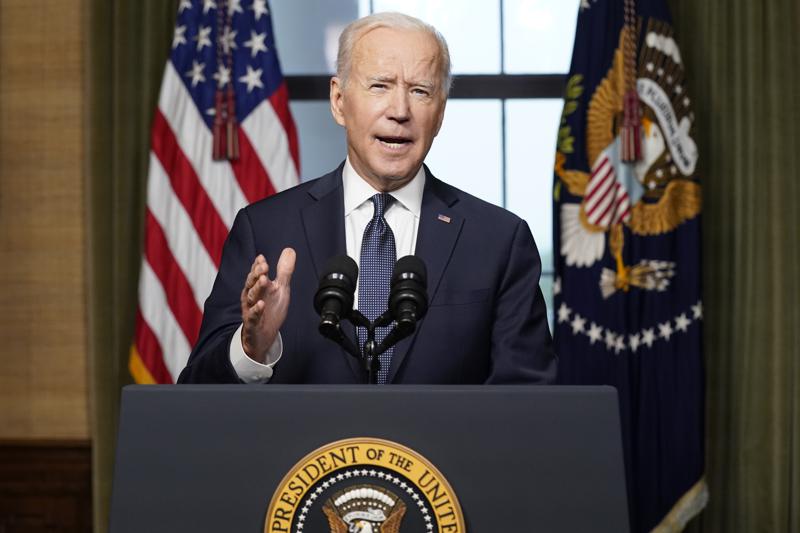The United States expressed its deepest condolences to Morocco and Libya, offering support to both nations in the wake of catastrophic earthquakes and floods, labeling these events as once-in-a-century disasters. The U.S. stands with the governments of Morocco and Libya as they embark on the path to recovery.
The statement was delivered during the Annual Meetings, a significant event held on the African continent for the first time in 50 years.
The speech highlighted the current state of the global economy, which has generally outperformed expectations, with growth exceeding projections and inflation rates decreasing in major economies, including the United States.
However, the global economy is not without challenges. Significant uncertainties loom due to various global shocks, including the economic disruptions stemming from the COVID-19 pandemic, climate change-induced extreme weather events, and ongoing fragility and conflicts worldwide.
The recent war in Ukraine initiated by Russia was condemned as illegal and unjustifiable, exacerbating global economic challenges by affecting energy and food prices. The U.S. called for a swift end to this war, which could potentially reverse some of these concerning trends and redirect the global economy towards a more positive trajectory.
These cumulative shocks have led to increased extreme poverty, hunger, and slower economic growth, with a more severe impact on emerging markets and developing countries, especially those already burdened by high debt levels and limited fiscal capacity.
Efforts to reform multilateral development banks (MDBs) have gained momentum, encompassing institutions like the World Bank. There has been a collective push for necessary and bold evolution reforms, acknowledging that addressing global challenges like climate change, pandemics, and conflicts is in the national interest of all countries and is integral to achieving poverty reduction and sustainable, inclusive, and resilient development.
These reforms aim to better equip MDBs to address these contemporary challenges, fostering a more efficient and effective system.
Over the past year, shareholders and World Bank Management have collaboratively pursued reforms to enable the bank to respond effectively to 21st-century challenges. This includes updated visions and missions, an enhanced operational model that integrates global challenges, and the introduction of a concessionality framework to provide greater support in addressing global issues. Reforms to the IBRD financial model are anticipated to yield around $50 billion in additional lending capacity over the next decade. The bank has embraced these changes to better provide finance and maximize impact.
While significant progress has been made, work remains to be done. The United States stressed the importance of robustly implementing these reforms, particularly those aimed at increasing speed and agility and reforms that have yet to be initiated. The World Bank was urged to create incentives for staff to incorporate global challenge solutions into country engagement and fully implement the recommendations of the G20 MDB CAF Report.
The U.S. also called on the World Bank to enhance its private capital mobilization (PCM) reforms by providing incentives for staff to mobilise private capital, setting ambitious portfolio-wide mobilisation targets, and improving the quality and accessibility of data. The emphasis is on scaling up private sector investment, using tools like guarantees, insurance, local currency lending, and de-risking to attract investors.
Addressing the global infrastructure gap, particularly in developing countries, is another priority.
This includes supporting infrastructure development in various sectors such as energy, transportation, health, digital technology, and critical minerals. Increased project preparation, access to knowledge and data, and policy reforms are crucial to make these projects more attractive to private investment.
The ongoing threat of global health crises, like the COVID-19 pandemic, necessitates a focus on regional and global health security.
The United States reaffirmed its commitment to improving health security and has pledged funding for the Pandemic Fund to address critical gaps in pandemic preparedness. The World Bank is urged to assess health-related risks and vulnerabilities within its ongoing work and to coordinate with partners to strengthen the global health architecture.
Violent conflict and fragility have increased over the past decade, causing extensive suffering, poverty, displacement, and economic stagnation. The United States is dedicated to mitigating these impacts through collective action and supporting self-reliant, resilient nations. As part of the evolution initiative, the World Bank was encouraged to integrate new diagnostics, incentives, and approaches into its operations to address the root causes and impacts of fragility, conflict, and violence.
Promoting gender equality and combating discriminatory laws and policies, social norms, and gender-based violence were emphasized in the context of the 2030 Agenda for Sustainable Development. Additionally, a call for greater accountability and transparency in multilateral institutions was made, with a focus on environmental and social safeguards, governance, and anti-corruption measures.
‘“As we work towards a better World Bank that is fit for 21st century challenges, we recognize the efforts undertaken by World Bank President Ajay Banga, senior management, and the thousands of staff who have tirelessly worked towards this goal. We are grateful for their energy, creativity, dedication, and collaborative spirit. They represent multilateralism at is best – collective work to meet the world’s most critical needs and to meet the moment with great impact.
At the end, the United States acknowledged the tireless efforts of World Bank President Ajay Banga, senior management, and staff in pursuing these vital reforms to meet global needs effectively.



